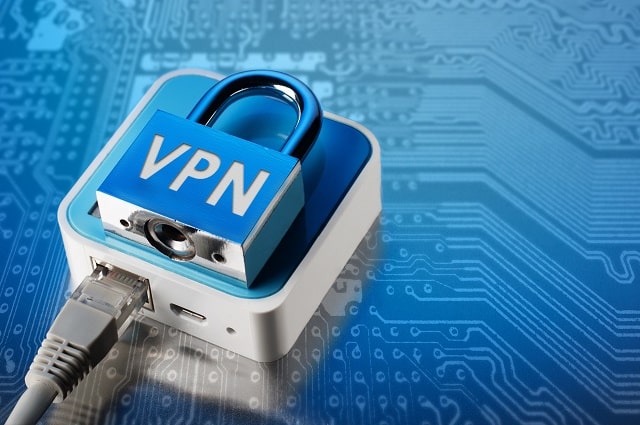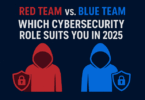Privacy concerns are growing, and it often feels like every device is watching your activities. But can your Wi-Fi router track your browsing? The answer might surprise you—read on to uncover the facts and protect your privacy!
Introduction
Today, online privacy has become a growing concern for internet users across the world. The rapid advancements in technology and the increasing dependency on internet-connected devices raised the risk of personal data being tracked and exploited has never been higher. Though many people focus on securing their devices with antivirus software or using incognito mode for private browsing, they often overlook one critical component of their internet security: the Wi-Fi router.
Wi-Fi routers are the gateways to the internet. They can act as silent observers of your online activities. Many users are unaware that these devices can collect detailed information about browsing habits. These devices connected to the network, and even the apps being used. This data is accessible to Internet Service Providers (ISPs). However, in some cases data can be exploited by third parties. That is especially true if the router is misconfigured or lacks adequate security.
Why should you care about Wi-Fi router tracking?
But why should you care about Wi-Fi router tracking? For one, your browsing history and personal data are valuable commodities. Advertisers, data brokers, and even malicious actors can leverage this information for targeted advertising, data profiling, or more nefarious purposes such as identity theft. Moreover, the lack of transparency around how routers collect and share this data makes it difficult for users to understand the full extent of the privacy risks they face.
Thankfully, protecting yourself does not have to be complicated. In this guide, we will explore whether your Wi-Fi router can track your browsing. In addition we share five actionable tips to help you safeguard your online privacy. We guide you from configuring router settings to using advanced tools like Virtual Private Networks (VPNs). These steps will empower you to take control of your digital footprint. Further, these steps ensure your personal information stays private.
By understanding the risks and implementing these simple measures, you can navigate the internet more securely and with peace of mind. Let us dive in and uncover the truth about Wi-Fi router tracking and how to protect your-self.
Can Your Wi-Fi Router Track Your Browsing?
Wi-Fi routers are essential devices that connect your home or office to the internet. However, beyond their role as enablers of connectivity, routers can also act as silent observers of your online activities. This raises an important question: Can your Wi-Fi router track your browsing? The answer lies in how routers function and how data flows through them.
How Do Wi-Fi Routers Collect Data?
Wi-Fi routers manage the entire data passing between your connected devices and the internet. Every time you visit a website, stream a video, or download a file, your router processes this information and sends it to your Internet Service Provider (ISP). While routers themselves do not actively “spy” on users, they log various types of information to facilitate this communication.
Here are some ways routers collect data:
- Traffic Logging:
Routers often log metadata about internet usage, such as:- IP addresses of connected devices.
- Websites accessed (domain names).
- The volume of data sent and received.
- Device Identification:
Routers can track the MAC addresses (unique hardware identifiers) of all devices connected to the network. This allows the router to know which device is using which service or visiting which website. - DNS Requests:
When you type a website URL, the router uses DNS (Domain Name System) to translate it into an IP address. These DNS requests can be logged. That is creating a record of the websites you have visited. - Network Usage Patterns:
Some routers are equipped with advanced analytics to monitor traffic patterns. They identify high-bandwidth activities, or prioritize specific types of data (like streaming vs. browsing).
What Types of Information Can a Router Track?
Routers can track various kinds of data, including:
- Browsing History: Although routers do not log the content of your browsing, they can record domain names (“prodigitalweb.com”) visited through the network.
- Device Activity: Routers can see which devices are connected and how much data they are using.
- Unencrypted Data: If you are visiting websites that do not use HTTPS (secure encryption), your router can see the pages and information being transmitted.
- Application Usage: Routers with advanced logging capabilities may track which apps are using the internet, like video streaming apps, social media platforms, or gaming services.
The Role of ISPs in Monitoring
While routers serve as intermediaries, Internet Service Providers (ISPs) are the main players when it comes to tracking your online activity. Your ISP has direct access to all the data passing through your router, including:
- Browsing History: ISPs can see the websites you visit. That is possible even if you are using incognito mode or private browsing.
- Connection Logs: ISPs log the time and duration of your internet connections.
- Data Consumption: They monitor how much data you consume and may throttle speeds based on usage.
How ISPs Use This Data
- Advertising and Data Sales: Many ISPs collect and sell anonymized data to advertisers and data brokers. This data helps them build user profiles for targeted advertising.
- Legal Compliance: ISPs may be required by law to store user data for a certain period and share it with authorities if requested.
- Performance Optimization: ISPs analyze data usage patterns to optimize their networks and identify high-traffic areas.
Can You Prevent Wi-Fi Router and ISP Tracking?
You cannot entirely stop your router or ISP from seeing some information. However, you can take steps to limit what they can track. Using tools like a Virtual Private Network (VPN) can encrypt your internet traffic. That is making it harder for routers and ISPs to monitor your browsing activities. Additionally, changing router settings and using secure DNS services can enhance privacy.
In the next section, we will explore actionable tips to safeguard your privacy and prevent router tracking.
Can Your Wi-Fi Router Track Your Browsing?
The question of whether a Wi-Fi router can track your browsing has become increasingly relevant in today’s digital landscape. Routers are essential for internet connectivity. However, they also play a significant role in the data flow between your devices and the web. This raises privacy concerns. Since your browsing activity and personal data could be accessible through your router or the ISP managing your connection. Let us dive deeper into how routers collect data, the types of information they track, and the role of ISPs in this process.
How Do Wi-Fi Routers Collect Data?
Your Wi-Fi router acts as a bridge between your devices and the internet. It processes every request you make online, whether it is loading a website, streaming a video or downloading files. As this data passes through the router, certain elements are logged, either to ensure proper functioning or for administrative purposes.
Here’s a detailed breakdown of how routers collect data:
- Traffic Monitoring and Metadata Logging:
Routers monitor all internet traffic to ensure data packets are sent and received correctly. During this process, they can log:- IP Addresses: Both the local IP addresses of connected devices and the external IP addresses of websites or servers accessed.
- Domain Names Visited: The router can record DNS requests. That translates website names (like “prodigitalweb.com”) into their corresponding IP addresses.
- MAC Address Tracking:
Each device connected to the router has a unique MAC (Media Access Control) address. The router keeps a log of these addresses. That is allowing it to track which devices are accessing the network and their activities. - Data Transmission Details:
Routers often log how much data each device uses. This includes upload and download speeds, total data consumption, and the type of traffic (video streaming, file downloads). - Unencrypted Data:
If you access a website without HTTPS encryption (indicated by a lock icon in your browser), the router can view the content of the transmitted data, such as text, images, and login credentials. - Behavioral Analytics (Advanced Routers):
Some modern routers include built-in analytics tools to monitor user behavior. For example, they can identify peak usage times, the most frequently accessed websites, and the types of applications consuming bandwidth (gaming or video conferencing apps).
What Types of Information Can a Router Track?
Routers, by their nature, handle all internet traffic in your network. As a result, they are capable of tracking a wide range of information, including:
- Browsing History:
Although routers may not store the specific content of the pages you visit, they can log domain names through DNS requests. For instance, visiting “https://www.prodigitalweb.com/category/technology/” might appear in logs as “prodigitalweb.com.” - Connected Devices:
Routers keep a detailed record of every device connected to the network. That includes their names, IP addresses, and MAC addresses. This allows them to identify which device accesses which service. - Online Activity Patterns:
By analyzing traffic data, routers can detect patterns such as frequent use of social media, video streaming, or gaming. - Bandwidth Usage:
Routers can track how much data each device consumes and may even prioritize certain types of traffic (streaming over browsing). - Application Activity:
Advanced routers can identify and categorize traffic from specific apps, such as Netflix, Spotify, or WhatsApp.
The Role of ISPs in Monitoring Your Browsing
While your router processes your internet traffic locally, your ISP is the next major player in the chain. ISPs have direct access to all the data transmitted through your router. They provide the internet connection and manage the data flow between your router and the websites or services you access.
Here is how ISPs track your browsing:
- Monitoring DNS Requests:
ISPs monitor DNS requests to determine which websites you visit. Even in private or incognito mode, these requests are visible unless you use a privacy-focused DNS service or a VPN. - Logging Connection Times and Durations:
ISPs can log when you connect to the internet, how long you stay connected, and the volume of data you send and receive. - Data Inspection:
Even though most data is encrypted through HTTPS, ISPs can still see the domains you visit. For unencrypted traffic, they can view the exact content being transmitted. - Analyzing Usage Patterns:
ISPs analyze usage patterns to optimize their networks. They can identify high-traffic users. They can enforce data caps or throttling policies.
Why Do ISPs Track Your Browsing?
- Advertising and Data Sales:
In many regions, ISPs are legally allowed to collect and sell anonymized user data to advertisers and data brokers. This data is often used to create targeted ad campaigns based on your browsing behavior. - Legal Compliance:
Governments often require ISPs to retain user data for a specific period for legal or security reasons. This data can be accessed by law enforcement agencies if needed. - Service Improvement:
ISPs use the data to monitor network health, and improve services. In addition, they use the data to allocate resources more efficiently. - Usage Policies and Fair Use:
ISPs track browsing data to ensure compliance with usage policies. They enforce data caps, or throttle heavy users during peak times.
Key Differences between Routers and ISPs in Tracking
| Aspect | Wi-Fi Routers | ISPs |
| Data Access | Limited to local network traffic | Full access to all internet traffic |
| Scope of Tracking | Device activity and DNS requests | Domain names, connection logs, and bandwidth |
| Visibility | Can track activity within your home network only | Can see all traffic leaving your home network |
Your Wi-Fi router does have the capability to track your browsing to some extent. They can track particularly in the form of metadata, DNS requests, and device activity. However, the ISP plays an even bigger role in monitoring your online behavior. Understanding how these systems work is the first step toward safeguarding your privacy. By taking proactive measures like using a VPN, encrypted DNS services, and securing your router, you can significantly limit the amount of data being tracked.
In the next section, we will share 5 actionable ways to protect your privacy from both router and ISP tracking. Stay tuned!
-
Why It Matters
Understanding the implications of Wi-Fi router tracking is essential in the digital age, where personal data has become a valuable commodity. The data your router collects can be leveraged in ways that may surprise or even alarm you. From enabling targeted advertising to potential privacy breaches, the consequences of router tracking extend far beyond mere convenience or network management. Let us explore these implications in detail.
-
Targeted Advertising and User Profiling
Your browsing data is tracked, either through your router or by your Internet Service Provider (ISP). It can be analyzed to create a detailed profile of your online behavior. This profile includes:
- Websites you visit.
- The time spent on each platform.
- The frequency of specific types of searches, like shopping, news, or entertainment.
How It Happens:
- Data Collection: Routers can log DNS requests. The DNS requests reveal the domains you access. For example, frequent visits to shopping websites might indicate consumer preferences.
- Behavioral Insights: Over time, this data is analyzed to predict your interests, habits, and purchasing behavior.
- Sharing with Advertisers: Some ISPs and third-party services may sell anonymized data to advertising companies. That is enabling them to target you with highly specific ads.
Impact on You:
While targeted ads might seem harmless or even useful, they can feel invasive. They create a sense that someone is “watching” your every move online. Worse, in cases where data is not properly anonymized, these ads might expose personal details inadvertently, breaching your privacy.
-
Data Sales to Third Parties
Your browsing data is incredibly valuable in the information economy. Companies, marketers, and data brokers are willing to pay substantial sums for insights into consumer behavior.
How It Happens:
- Anonymized Data: ISPs and router manufacturers sometimes aggregate and anonymize user data before selling it to third parties. However, there have been instances where such data was improperly anonymized. That is making it possible to trace it back to individual users.
- Direct Monetization: Some free or low-cost routers, particularly those bundled with services, may monetize user data to offset their operating costs.
Impact on You:
Even if the data is anonymized, the sale of your information to unknown entities raises ethical concerns. It also places your data in the hands of organizations with whom you have never consented to share it. That is potentially leading to its misuse.
-
Increased Risk of Privacy Breaches
As your router logs and stores information about your browsing activity, it becomes a potential target for hackers and cybercriminals. If your router is not adequately secured, attackers could gain access to sensitive data.
How It Happens:
- Router Vulnerabilities: Weak passwords, outdated firmware, or default configurations can make routers easy targets.
- Data Interception: Hackers may intercept unencrypted traffic passing through the router. That is exposing your browsing activity, login credentials, or personal messages.
Impact on You:
A privacy breach could lead to serious consequences, such as:
- Identity theft if personal information is intercepted.
- Financial loss if banking or payment details are exposed.
- Compromised security if attackers use your data for phishing or fraud.
-
Lack of Transparency and User Control
Many users are unaware of how much information their router collects or how this data is used. Router manufacturers and ISPs often bury these details in lengthy privacy policies or terms of service agreements that few people read.
How It Happens:
- Opaque Policies: Manufacturers or ISPs may collect data “for network optimization” or “to improve user experience.” However, these broad terms often conceal the full extent of tracking activities.
- Limited User Options: Most routers lack straightforward settings to disable tracking or view what data is being collected.
Impact on You:
The lack of transparency makes it difficult to make informed decisions about your privacy. It also erodes trust in those companies managing your network infrastructure.
-
Ethical and Societal Implications
Router tracking has broader implications for society. That is especially true in countries with limited digital privacy protections. This includes concerns about surveillance, censorship, and misuse of personal data.
How It Happens:
- Government Surveillance: In some regions, ISPs and routers are used as tools for mass surveillance. They are collecting data to monitor citizens’ activities.
- Data Exploitation: Companies with access to browsing data can manipulate users through targeted misinformation or exploit vulnerabilities for profit.
Impact on You and Society:
The normalization of tracking undermines the right to privacy. Right to privacy is a fundamental principle in democratic societies. It sets a precedent for unchecked surveillance and reduces accountability for data misuse.
Why You Should Care
Router tracking may seem like a technical issue. However, its implications touch every aspect of your online life:
- Loss of Privacy: Your personal data, browsing history, and behavioral patterns are no longer private.
- Manipulation: The data collected can be used to influence your decisions, from the products you buy to the news you see.
- Security Risks: Inadequate protection of collected data increases your vulnerability to cyberattacks.
Being aware of these risks is the first step in protecting yourself. In the next section, we will discuss actionable strategies to safeguard your privacy and minimize the impact of router tracking.
-
5 Ways to Protect Your Privacy
We are living in an era where online privacy is constantly at risk. Therefore protecting your browsing habits and personal data from prying eyes is crucial. Wi-Fi routers, a cornerstone of internet connectivity, can inadvertently become tools for tracking and data collection. Here are five actionable steps to safeguard your privacy and secure your online activities.
-
Change Default Router Settings
Many routers come with factory-default settings that are easy for attackers to exploit. Changing these settings is a critical first step to enhancing your privacy.
Steps to Take:
- Use Strong Passwords: Replace the default router admin password with a unique, complex password that includes a mix of letters, numbers, and symbols.
- Enable Strong Encryption: Ensure your Wi-Fi network uses robust encryption protocols like WPA3. If WPA3 is not available, use WPA2. However, avoid outdated protocols like WEP that are easy to crack.
- Rename Your Network (SSID): Change the default network name to something unique but not personally identifiable. Avoid using names like “John’s Wi-Fi” or “123 Main Street.”
Why It Matters:
Changing default settings minimizes the risk of unauthorized access to your router. It also prevents attackers from easily guessing your credentials. That helps you protect both your data and your devices.
-
Use a VPN
A Virtual Private Network (VPN) is one of the most effective tools for protecting your browsing activity from ISPs, routers, and potential eavesdroppers.
How a VPN Helps:
- Encrypts Your Traffic: A VPN creates an encrypted tunnel between your device and the VPN server. That encrypted tunnel prevents anyone, including your router or ISP, from seeing your browsing activity.
- Masks Your IP Address: It hides your real IP address. IP address masking makes it harder for websites and advertisers to track you.
- Bypasses ISP Throttling: Some ISPs throttle bandwidth based on your activity. A VPN can prevent this by encrypting the traffic and hiding its nature.
Choosing a VPN:
Select a reputable, no-logs VPN provider. Popular choices include NordVPN, ExpressVPN, and CyberGhost. Avoid free VPNs. The free VPNs may sell your data to third parties.
Why It Matters:
Using a VPN ensures that even if your router or ISP collects data, the encrypted traffic is unreadable. That is preserving your privacy.
-
Update Router Firmware
Outdated firmware is a common vulnerability that hackers exploit. Keeping your router’s firmware up to date is essential for maintaining security and privacy.
Steps to Update:
- Log in to your router’s admin panel (usually via an IP address like 192.168.0.1 or 192.168.1.1).
- Check for firmware updates in the settings or support section.
- Download and install updates from the router manufacturer’s official website.
- Set up automatic updates if your router supports it.
Why It Matters:
Router manufacturers release firmware updates to patch known vulnerabilities and improve security features. Regular updates prevent hackers from exploiting outdated software to access your data or network.
-
Disable Tracking Features
Some routers come with tracking features or data collection settings enabled by default. These features, often marketed as tools to “improve performance,” can compromise your privacy.
Steps to Disable Tracking:
- Access Tracking Settings: Log in to your router’s admin panel and navigate to privacy or advanced settings.
- Turn Off Analytics: Disable any features labeled as “network analytics,” “device monitoring,” or “smart tracking.”
- Opt-Out of Data Sharing: If your router has a data-sharing policies then opt-out whenever possible.
Why It Matters:
Disabling tracking features ensures that your router is not collecting and potentially sharing data about your internet usage with manufacturers or third parties.
-
Monitor Network Activity
Keeping an eye on your network traffic can help you detect unusual activity like unauthorized devices connecting to your network or suspicious data usage.
Tools to Use:
- Router Dashboard: Most routers have a dashboard where you can view connected devices. Regularly check this list to ensure no unauthorized devices are using your network.
- Network Monitoring Software: Use tools like Fing, GlassWire, or Wireshark to analyze your network traffic and detect unusual activity.
- Set Usage Alerts: Some routers allow you to set alerts for unexpected spikes in data usage. The spikes in data usage could indicate unauthorized access.
Why It Matters:
Monitoring network activity helps you identify and address security breaches early. That is helping you to protect your personal data and ensure that your network remains secure.
Final Thoughts
Protecting your privacy requires proactive steps to secure your router and network. Implementing these five measures—changing default settings, using a VPN, updating firmware, disabling tracking features, and monitoring network activity—can significantly reduce the risk of tracking. Further that ensures a safer online experience.
Taking control of your privacy is not just about security; it is about asserting your right to browse the internet without unwanted surveillance. Stay informed, stay secure, and safeguard your digital life.
-
Common Myths about Wi-Fi Router Tracking
When it comes to Wi-Fi router tracking, many people hold onto misconceptions that can leave their data and privacy at risk. These myths often create a false sense of security. That is preventing users from taking the necessary steps to protect them. Let us debunk some of the most common myths about Wi-Fi router tracking.
Myth 1: Turning Off Wi-Fi Stops Tracking
It is a common belief that simply turning off your Wi-Fi router when not in use can stop tracking or protect your browsing history. It is true that the router cannot track activity when it is powered off. However, this does not erase the data it has already logged or stop other tracking mechanisms.
The Truth:
- Wi-Fi tracking may pause when the router is off. However, the moment you turn it back on, the tracking resumes.
- Internet Service Providers (ISPs) often store your browsing data on their servers, independent of whether your router is on or off.
- Devices connected to cellular data or other networks can still be tracked even if your Wi-Fi is turned off.
What You Can Do:
- Focus on minimizing tracking by using encryption tools like VPNs or ensuring your router settings are privacy-focused.
- Regularly delete your browsing history or logs from both your browser and router, if possible.
Myth 2: Incognito Mode Protects Everything
Incognito or private browsing mode is often misunderstood as a comprehensive privacy solution that shields all online activity. Though it does offer some level of anonymity but its protections are limited.
The Truth:
- Incognito mode prevents your browser from saving your browsing history, cookies, and search data locally on your device.
- It does not hide your activity from your Wi-Fi router, ISP, or websites you visit. These entities can still track your online behavior like the websites you access and the data you share.
- Other connected devices on the same network can still monitor your traffic if they have the necessary tools.
What You Can Do:
- Use a VPN to encrypt your internet traffic and make it invisible to ISPs and routers.
- Combine incognito mode with privacy-focused search engines like DuckDuckGo to limit tracking.
Myth 3: Public Wi-Fi is Safe if it is Password-Protected
Many users assume that public Wi-Fi networks with a password are secure and free from tracking risks. However, public networks, even those with passwords, are still prone to surveillance and hacking.
The Truth:
- Password protection on public Wi-Fi only limits access to the network. However, it does not encrypt your data.
- Routers in public spaces, like cafes or airports, often collect user data. That data can be shared with third parties for marketing or analytics purposes.
- Hackers can still intercept unencrypted data transmitted over public Wi-Fi.
What You Can Do:
- Avoid accessing sensitive information, like online banking or emails, on public Wi-Fi.
- Always use a VPN when connecting to public networks to encrypt your data.
- Consider using your mobile data as a safer alternative when privacy is a concern.
Myth 4: Routers Only Track when you are actively Browsing
Some believe that routers only log data when you are actively using the internet. However, routers continuously collect information, even when devices are idle or in sleep mode.
The Truth:
- Routers track connected devices and their interactions with the network 24/7, even if the devices are not actively browsing.
- Background apps, updates, and IoT devices (smart TVs, cameras) constantly send and receive data. That can be logged by the router.
What You Can Do:
- Periodically disconnect devices that do not need internet access.
- Use network monitoring tools to understand what devices are connected and what data is being transmitted.
Myth 5: Disabling Cookies Stops All Tracking
Cookies are a significant part of online tracking. Disabling cookies are often seen as a foolproof method for protecting privacy. While this reduces certain types of tracking, it does not address all sources.
The Truth:
- Cookies are just one mechanism for tracking. ISPs, routers, and websites can still monitor your activity through other means, like IP addresses, metadata, or browser fingerprints.
- Some routers and ISPs store logs of your browsing history regardless of whether cookies are enabled or disabled.
What You Can Do:
- Disable cookies for non-essential websites and use browser extensions like uBlock Origin or Privacy Badger to limit tracking.
- Combine cookie management with VPN usage and encryption to enhance privacy.
The Importance of Debunking Myths
Believing these myths can leave you vulnerable to privacy breaches, data collection, and potential exploitation. Protecting your online activity requires a combination of effective tools, proactive practices, and awareness of how tracking works.
Understanding the limitations of common privacy misconceptions can take informed steps to secure your data and maintain control over your digital life.
-
Conclusion
In an age where online privacy is a growing concern, understanding how your Wi-Fi router tracks your browsing activity is essential for safeguarding your personal data. We have explored various aspects of Wi-Fi router tracking, and debunked common myths. In addition, we have shared actionable tips for securing your privacy. Now, let us wrap up the key takeaways and highlight the importance of taking immediate steps to protect your digital life.
Key Takeaways:
-
Wi-Fi Routers Can Track Your Browsing:
Routers can collect information about your online activity, including the websites you visit, the devices you use, and even your IP address. This tracking is often done for purposes like improving service and providing personalized ads, or selling your data to third parties.
-
ISPs Play a Role in Monitoring:
Your Internet Service Provider (ISP) has access to the data transmitted through your router. That is making them another potential source of surveillance. They can log your browsing activity. That can be accessed by authorities or sold to advertisers.
-
Myths Surrounding WI-Fi Tracking:
Common misconceptions like thinking that turning off Wi-Fi stops tracking or relying solely on incognito mode for privacy, can leave you exposed. These myths create a false sense of security and fail to address the actual threats to your privacy.
-
Effective Ways to Protect Your Privacy:
To protect your privacy, you should take proactive steps:
- Change default router settings by using strong passwords and encryption protocols like WPA3.
- Use a VPN to encrypt your traffic and prevent your router or ISP from tracking your online activity.
- Regularly update your router firmware to patch vulnerabilities and improve security.
- Disable tracking features on your router to limit data collection.
- Monitor your network activity to detect unauthorized access or unusual behavior.
-
Continuous Vigilance Is Key:
Protecting your privacy is not a one-time effort but an ongoing process. You need to stay informed about potential threats and make adjustments as and when needed. You need to do firmware updates, changing passwords and monitoring network activity regularly.
Encouragement to Take Immediate Action:
Now that you have the knowledge and tools to protect your privacy, it is crucial to act swiftly. The longer you wait, the more vulnerable your personal information becomes. By implementing the strategies we have outlined—starting with changing your router’s default settings, using a VPN, and disabling unnecessary tracking features—you can dramatically reduce the risk of your browsing being monitored.
Take control of your digital privacy today. Here is how you can start:
- Change Your Router’s Default Password: If you have not already, this simple change can significantly enhance your security.
- Enable WPA3 Encryption: Check your router settings to ensure that you are using the latest encryption standard for maximum protection.
- Install a VPN: A VPN is one of the most effective tools for encrypting your online activity. Do not wait—get started with a reputable VPN service now.
- Regularly Monitor Your Network Activity: Keep an eye on your router’s dashboard and use network monitoring tools to detect any unauthorized devices or unusual data usage.
Your privacy is in your hands. Start taking action today to protect your personal information and secure your online presence. The more proactive you are in safeguarding your privacy, the more control you will have over your digital footprint.
In conclusion, while Wi-Fi routers can track your browsing activity, taking simple, actionable steps can significantly reduce the chances of your personal data being exposed. Your online privacy is worth protecting, so take these steps today and enjoy a safer, more secure digital experience.
FAQ: Can Your Wi-Fi Router Track Your Browsing?
-
Can my Wi-Fi router track my browsing activity?
Yes, your Wi-Fi router can track your browsing activity to some extent. It logs data such as the websites you visit, the devices connected to the network, and your IP address. However, the level of tracking can vary depending on the router and the settings it uses.
-
How does my ISP play a role in tracking my browsing?
Your Internet Service Provider (ISP) can also monitor your browsing activity because all your internet traffic passes through their network. ISPs can log your data such as the websites you visit, and in some cases, they may share this information with third parties or advertisers.
-
Does turning off my Wi-Fi router stop tracking?
Turning off your Wi-Fi router will stop active data collection while it is off. However, your ISP may still monitor your activity when the router is back online. Further, routers may log data that persists even after being powered off. Simply turning off your Wi-Fi does not erase tracking information or prevent future tracking.
-
Does using incognito mode prevent my router from tracking me?
No, incognito mode does not stop your router or ISP from tracking your browsing activity. Incognito mode prevents your browser from storing history or cookies locally. However, your ISP and router can still log your web traffic. To hide your activity, consider using a VPN to encrypt your data.
-
Can I completely prevent my router from tracking my browsing?
While you can not completely eliminate all forms of tracking, you can significantly reduce it. Steps like changing your router’s default password, enabling encryption (WPA3), using a VPN, disabling tracking features on your router, and monitoring your network activity will greatly reduce tracking.
-
Do public Wi-Fi routers track my browsing?
Yes, public Wi-Fi routers can track your browsing activity. In addition to the risks posed by public networks, the data you send over unencrypted connections can be intercepted or logged. Using a VPN on public Wi-Fi will help encrypt your data and protect your privacy.
-
What information do Wi-Fi routers track?
Wi-Fi routers typically track information like the devices connected to the network, their MAC addresses, IP addresses, and the websites accessed. Some routers also track the amount of data sent and received by each device.
-
How can I protect my privacy on my Wi-Fi network?
To protect your privacy, follow these tips:
- Use strong passwords and enable WPA3 encryption on your router.
- Install and use a VPN to encrypt your traffic.
- Regularly update your router’s firmware to patch security vulnerabilities.
- Disable any tracking features on your router.
- Monitor your network activity for unauthorized access or unusual data traffic.
-
Can my router track my activity if I use a VPN?
No, if you use a VPN, your router will not be able to track your browsing activity. A VPN encrypts your internet traffic. Encryption is hiding it from both your router and ISP. However, the VPN service itself can see your activity, so it is important to choose a trustworthy and privacy-focused VPN provider.
-
Does my router track my activity even if I’m not actively browsing?
Yes, your router can track your activity even when you are not actively browsing. Devices connected to your Wi-Fi, such as smartphones or IoT devices, may still send and receive data in the background, which can be logged by your router.







